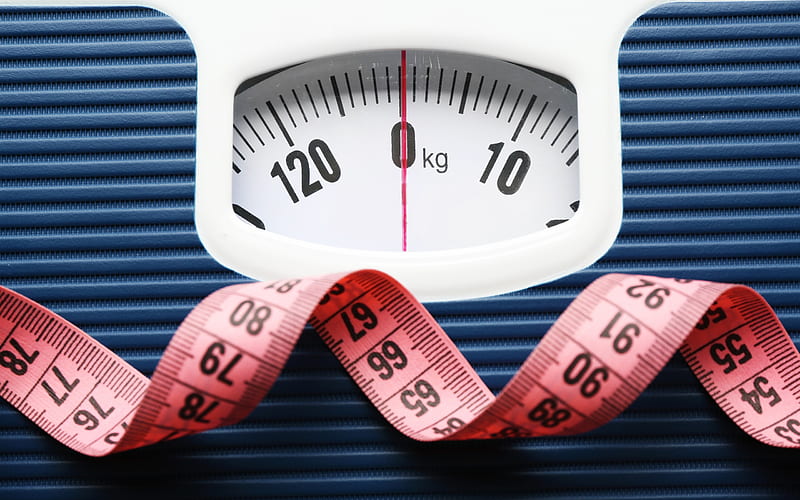Finding the best path for your fitness journey

Weight loss refers to a decrease in your overall body weight whereas inch loss refers to reduction in your body measurements.
A decrease in your size but not on the scale may be caused by losing fat while gaining muscle at the same time. If you are losing inches but maintaining weight and regularly strength training you may actually be losing fat and gaining muscle. The process of gaining muscle and losing fat at the same time is called body recomposition. Strength training combined with a reduced calorie and high protein diet favors muscle gain and fat loss resulting in body recomposition.
Body recomposition is a better way of losing weight and so there is no need to get disappointed when your weighing scale shows no changes in body weight.
There may be no changes in your body weight due to;
Water retention:
Water retention could be due to various factors like
Sodium: eating high sodium foods can cause your kidney to retain water.
Stress: whenever your stressed the occurring hormonal changes causes water retention.
Creatinine: creatinine effectively increases muscle strength and power; it can temporarily increase the amount of water in muscle cell.
Medications: certain medications such as those of lowering blood pressure, controlling blood sugar and managing inflammation can cause fluid retention.
Water retention in the above cases may be temporary and go away on its own.
You may have reached a weight loss plateau:
Here when u have reached a weight loss plateau, we need to shake off the weight by either changing your diet or exercise. What would have happened is your body would be easily adapted to the present exercise or diet and hence it will not give any results, in such cases we need to tailor the exercise regime or diet plan.
How often do you need to weigh yourself;
It’s not advisable to check your weight every day, as the results may be disappointing, you have to fix the same time and day every time you check your weight, say for example every Monday early morning on an empty stomach so you check your weight only on that day and same with your body measurements also.
If you aim to get healthy and fit, then don’t depend on your weighing scale, it’s not the absolute way to determine the ideal body weight as per your height and age. Measuring the body mass index (BMI), waist to hip ratio, body fat percentage are more appropriate ways to know your healthy weight.
Weight loss or inch loss what’s better depends on your goal and requirements.
If your over weight you should focus on weight loss but if have reached a healthy BMI but still have excess fat then you focus on losing on inches in areas like your waist, hips, and thighs. Losing weight in the form of fat is healthier way of weight loss than losing your muscle.
You can prioritize fat loss by eating plenty of proteins, exercising regularly and moderately restricting your calories.
It’s very important to maintain fat levels in our body to avoid obesity, diabetes, and cardio vascular diseases.
To conclude we can say that weight loss or inch loss should always be accompanied by diet and exercise, so when it comes to diet it’s not avoiding foods its intake of a balanced food what’s required, when we say balanced it’s including all nutrients required for the body in correct proportion to be taken regularly. And speaking about exercise its combination of cardio as well as weight training which is required based on the condition of the client.

References;
https://www.healthline.com/nutrition/losing-inches-but-not-weight
https://www.ncbi.nlm.nih.gov/books/NBK221839
https://www.healthline.com/nutrition/how-long-does-it-take-to-lose-weight
